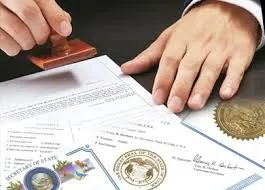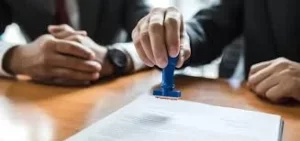Table of Contents
- Introduction
- Importance of Document Legalization
- Types of Documents That Require Legalization
- Step-by-Step Process of Obtaining Certifications & Legalization of Documents from the Austrian Embassy
- Step 1: Gather Required Documents
- Step 2: Notarization of Documents
- Step 3: Authentication by the Relevant Authorities
- Step 4: Final Submission to the Austrian Embassy
- Common Challenges and Solutions
- Costs Involved
- Additional Considerations
- Conclusion
- FAQs
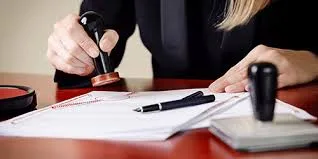
Process of Obtaining Certifications & Legalization of Documents from the Austrian Embassy
1. Introduction
Understanding the process of obtaining certifications & legalization of documents from the Austrian Embassy is crucial for anyone looking to study, work, or settle in Austria. This process ensures that your documents are recognized legally and facilitates a smoother transition into your new environment. Whether you are applying for a visa, pursuing education, or seeking employment, having your documents properly legalized can make all the difference.
2. Importance of Document Legalization
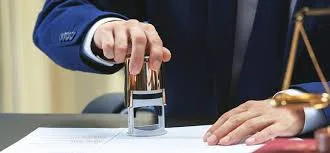
The process of obtaining certifications & legalization of documents from the Austrian Embassy serves multiple essential functions:
- Recognition of Credentials: Legalized documents ensure that your qualifications are recognized in Austria, allowing for seamless enrollment in educational institutions or employment.
- Legal Protection: Properly legalized documents provide legal backing in case of disputes or issues arising during your stay in Austria.
- Facilitating Bureaucratic Processes: Legalization minimizes bureaucratic hurdles, enabling a smoother experience when dealing with local authorities.
- Avoiding Delays: Legalizing your documents ahead of time can prevent unnecessary delays in your application process, helping you meet critical deadlines.
3. Types of Documents That Require Legalization
Before diving into the process of obtaining certifications & legalization of documents from the Austrian Embassy, it’s vital to understand which documents typically require this process:
- Academic Transcripts: Required for educational pursuits.
- Bachelor’s and Master’s Degree Certificates: Essential for employment and higher education applications.
- Birth and Marriage Certificates: Important for family reunification and legal identity verification.
- Professional Qualifications: Necessary for job applications in specialized fields.
4. Step-by-Step Process of Obtaining Certifications & Legalization of Documents from the Austrian Embassy
Step 1: Gather Required Documents
The first step in the process of obtaining certifications & legalization of documents from the Austrian Embassy is to gather all the necessary paperwork. Ensure you have the following:
- Original Documents: These could include your degree certificates, academic transcripts, birth certificates, and any other relevant documents.
- Identification: A valid passport or national ID is usually required.
- Proof of Purpose: Documents demonstrating the purpose of legalization, such as acceptance letters from universities or job offers.
Step 2: Notarization of Documents
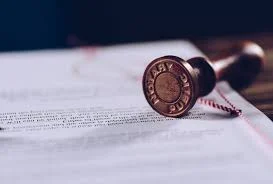
Once you have gathered your documents, the next step is notarization:
- Visit a Notary Public: Take your original documents to a notary public, who will verify your identity and the authenticity of your documents.
- Fees: Be prepared to pay a fee for notary services, which can vary based on location and document type.
Step 3: Authentication by the Relevant Authorities
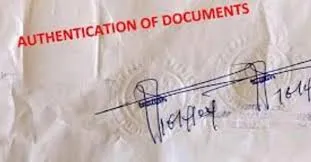
After notarization, you need to have your documents authenticated:
- Submit Notarized Documents: Present the notarized documents to the relevant authority in your state or country, such as the Secretary of State or an equivalent agency, for authentication.
- Processing Time: This can take several days to weeks, so plan accordingly and keep track of deadlines.
Step 4: Final Submission to the Austrian Embassy
Once your documents are authenticated, it’s time to submit them to the Austrian Embassy:
- Prepare for Submission: Include all required documents, any specific forms required by the embassy, and proof of payment for any fees.
- Embassy Fees: Be prepared to pay a certification fee at the embassy, which may vary.
5. Common Challenges and Solutions
The process of obtaining certifications & legalization of documents from the Austrian Embassy can present various challenges. Here are some common issues and potential solutions:
- Delays: Local offices may have backlogs that prolong the process. To mitigate this, start the legalization process as early as possible.
- Time Consumption: Multiple visits to various offices can be taxing. Consider grouping your visits to minimize time spent.
- Language Barriers: If you’re not fluent in the local language, consider bringing someone who can assist with communication.
- Document Translation: Depending on the requirements, you may need to have your documents translated into German. Ensure that you choose a certified translator to avoid complications.
6. Costs Involved
Understanding the financial aspect of the process of obtaining certifications & legalization of documents from the Austrian Embassy is crucial. Here’s an approximate breakdown of the costs you might incur:
- Notarization: $10 – $50 per document.
- Authentication: $20 – $100, depending on the authority.
- Embassy Certification: $50 – $150, depending on the embassy and specific services required.
7. Additional Considerations
As you prepare to navigate the process of obtaining certifications & legalization of documents from the Austrian Embassy, keep the following in mind:
- Document Translation: If your documents are not in German, you may need to get them translated. Check with the embassy for specific requirements.
- Time Management: Allocate enough time for each step to avoid last-minute rushes. It’s advisable to create a timeline for the entire process.
- Legal Advice: If you’re unsure about any aspect of the legalization process, consider seeking legal advice to ensure everything is done correctly.
8. Conclusion
Navigating the process of obtaining certifications & legalization of documents from the Austrian Embassy is crucial for anyone looking to pursue opportunities in Austria. By following the steps outlined in this guide, you can effectively manage the legalization process and ensure that your documents are recognized.
Properly legalized documents pave the way for a smoother transition into your new environment, whether for education, work, or residency.
Ready to simplify the process of obtaining certifications and legalizing your documents from the Austrian Embassy? At Campus Benin, we’re here to assist you every step of the way! Our experienced team is dedicated to guiding you through the complexities of document legalization, ensuring you meet all requirements efficiently and accurately.
Contact us today to discover how we can help with our comprehensive services and transparent fees for document legalization.
📞 Call us at (+229 9471 1553)
📱 Or reach out via WhatsApp at [+229 5383 6082]
🌐 Visit our website at [https://campusbenin.org/]
Don’t navigate this process alone—let Campus Benin make your journey to studying or working abroad as smooth as possible. Get in touch now!
FAQs
- How long does the entire legalization process take?
- The timeline can vary, but the entire process may take anywhere from a few days to several weeks, depending on the authorities involved.
- Can I legalize documents for someone else?
- Yes, but you will need proper authorization from the individual whose documents you are legalizing.
- Are there specific documents that the Austrian Embassy requires?
- Always check the embassy’s official website for the most current list of required documents tailored to your situation.
- What if my documents are in a language other than German?
- You will need to have those documents translated and notarized before starting the legalization process.
- Is it possible to expedite the process?
- Some notaries and offices may offer expedited services for an additional fee. Check with local offices for options.
See More: https://campusbenin.org/how-to-legalize-your-documents-from-the-russian-embassy/


